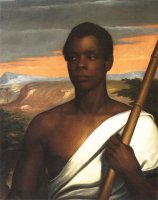
Programme prévisionnel DNL Histoire-Géographie 2016-2017 pour la classe de Première
L’année de Première en DNL histoire-géographie est une année de transition : contrairement à la Seconde, les élèves ne gardent qu’une seule DNL. Elle permet donc d’étudier des thèmes avec davantage de profondeur et de préparer l’année de Terminale (et l’examen).
Le choix des trois thèmes a donc été guidé par ces deux objectifs.
Au premier trimestre, l’histoire britannique sera à l’honneur ("Power, Politics & Protest : the Growth of Political Rights in Britain & Ireland in the 19th century") avec une focale sur la manière dont les droits politiques ont été conquis au Royaume-Uni.
Le deuxième trimestre est consacré à la géographie avec une étude sur les villes américaines ("American Cities, Wired"), et leurs dynamiques de ségrégation socio-spatiales, à travers les exemples de Baltimore et de Detroit, vues par la série américaine The Wire de David Simon (HBO) et le film Only Lovers Left Alive de Jim Jarmush.
Au troisième trimestre, il s’agira de comprendre l’histoire des Afro-Américains, depuis la fondation des Etats-Unis en 1776 jusqu’à la veille de la Seconde Guerre mondiale ("The Afro-Americans, 1776-1939 : Slavery, Freedom, Segregation")... annonçant ainsi le premier thème de Terminale.
1st trimester : History – Power, Politics & Protest : the Growth of Political Rights in Britain & Ireland in the 19th century
The case studies below will be studied by groups of students (2-3) who will have to prepare a presentation for the rest of the class.
Other students will write a report on the presentations delivered, and other students will assess their classmates.
Students will use, whenever possible, original primary sources, as historians do. Most of them come from the National Archives (at Kew) : http://www.nationalarchives.gov.uk/education/politics/
Case study 1 : The Radicals
Case study 2 : The Luddites
Case study 3 : Captain Swing
Case study 4 : The Peterloo Massacre (1819)
Case study 5 : Catholic Emancipation in Ireland (1829)
Case study 6 : The Great Reform Act of 1832
Case study 7 : The Chartists
Case study 8 : ‘White Slavery’ (woman work in England)
Case study 9 : Suffragettes
Case study 4, 5 & 6 are conducted by the teacher. Final task : a parliamentary debate set in 1819 for case study 4 ; realize a “TV” report live from Parliament covering the passing of the Reform Act for case study 6. Final task has yet to be determined for case study 5.
Final task and conclusion : talk show for the school radio. Students assume the role of historians, specialists of the time period, discussing amongst themselves about the growth of political rights in 19th-century Britain (and drawing lessons about today !).
2nd trimester : Geography – The American Cities, Wired.
Case study : The America of Those Who Have Nothing : study of Baltimore with The Wire, season 1, episode 1. See the introduction and opening credits here.
Final task : Detroit, Wired (the students present an episode 0 of a show set in Detroit to a TV channel producer (i.e. the teacher), trying to convince him to fund their show. Also : the show must have vampires because this !)
3rd trimester : History – The Afro-Americans, 1776-1939 : Slavery, Freedom, Segregation
Study 1 : Were the Afro Americans ? Why did the Founding Fathers decide to maintain slavery in the newly freed United States ? Final task : Let’s re-do the Philadelphia Convention, 1787 (and radio existed back then, you didn’t know ? Well it did, and we found recordings of the proceedings… Radio show).
Study 2 : The Amistad Rebellion (1839). What does the revolt of the slaves of the Amistad tell us about slavery and the abolitionist movement ? Lecture by Prof. Marcus Rediker.
Study 3 : The Afro-Americans & the Civil War, 1861-5. Sources and final task to be determined (perhaps the film Free State of Jones, 2016)
Study 4 : Jim Crow comes Marchin’ Home. Sources and final task to be determined.
Pour une présentation plus détaillée (et en images) du programme, voir le diaporama ci-dessous.
Documents joints
2017_premiere_history_geographycurriculum.pdf - PDF - 3.9 Mio

